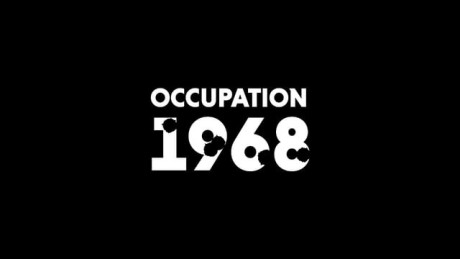


Peter Kerekes: Occupation 1968

A Russian comes to the passport control in a Western European country. Occupation asks the passport official? No No, answers the Russian, just visiting…
A classic joke that I dare put as the beginning of this review of the omnibus film, with Peter Kerekes as the main producer. 5 films, 5 directors from the 5 Warsaw Pact countries that occupied Czechoslovakia in August 1968. 5 films seen from the point of view of those, who took part in the occupation. Excellent idea and excellently performed even if, as with all omnibus films I am afraid, the difference in style and quality is sometimes disturbing.
From me as a visitor to Prague during the Prague Spring in 1968 months before the invasion, with several visits to the city during the communist times and with tears in my eyes when the velvet revolution took place in 1989 and I saw Dubcek and Havel saluting and being saluted by the population from the balcony in Prague… Thanks for dealing with the past.
I put Kerekes at the top of this text and included the joke as it is obvious that
the producer/director has been strongly shaping the visual approach of the film – in many of the episodes I was thinking of his masterpiece “Cooking History” = searching for the absurdity AND the humanity in an important world historical event:
We viewers are invited to be with old men in uniforms with medals and with old men without uniforms remembering their participation in the Soviet-led invasion. Of course some films are more interesting than others, storytelling is different going from staged fictionalized to classical documentary, always with some b/w archive material from the streets of Prague, tanks, demonstrations, corpses, politicians talking about what they saw as a counter-revolution.
A few observations on each of the five films:
“The Last Mission of General Ermakov” by Evdokia Moskvina – has a fine touch of the absurdity mentioned above starting with a grandiose dinner on the beach in Odessa, where Ermakov invites his fellow comrades from the invasion to toast for the good old days being in telephone contact with the man in Moscow, who was in charge of the air attack on Prague. The scoop in this film episode is that the director takes the general and a nurse who was with him in 1968 on a tour that includes Kiev, Minsk, Moscow to end up in Prague, where they (now also having a third companion from Belarus, introducing himself as Jewish) meet a 90 year old captain from the Czechoslovakian army, who takes them to the control tower at the airport where the occupants landed in August 1968. The jolly good fellow atmosphere goes away instantly when the captain declares that “I can not forgive you”. A brilliant original start on “Occupation 1968” is Moskvina’s film with General Ermakov as a proud soldier, who is now telling his grandchild what is was to be at war, at “Operation Danube” and teaches him to hold a pistol in the right way…
“Red Rose” by Linda Dombrovszky – starts weaker with soldiers dressing up as then, gets stronger when memories are conveyed through letters and archive material and has a fine personal story about a soldier, who met his former wife to be, when he and the other Hungarian soldiers entered the part of Czechoslovakia that had a Hungarian population. This episode did not really catch my attention as did
“I’m Writing to You My Love” by Magdalena Szymkow – that is Polish hybrid documentary at its best, different from the other episodes putting the focus on the strong reactions IN Poland on the invasion, set up “inside” a love story between a woman, who sits with love letters from her colonel, who went to invasion and got a three-day leave pass to go home to get married. The film is tense in an editing that communicates the atmosphere of the time – surveillance by the Secret Service – the protests connected to a music festival in Sopot where singers left – the dramatic footage of a man burning himself to death in a stadium, an event that after 1989 became the subject of a film by Maciej Drygas. In other words: a very competent visual interpretation of the 1968 invasion from a Polish point of view. Cinema!
“Voices in the Forest” by Marie Elisa Scheidt – is a minimalistic report from Walter Ulbricht’s GDR, that was totally pro all decisions made in the Soviet Union, including this act of war. The title refers to conversations between two men, who decided to NOT obey what they were told to and paid a prize for their anti-socialistic action. The film is like a chamber play, important in words, a fine dialogue where they go back to what they remember “from this madness”. And the episode ends with a fine concert in the forest!
The film – with a small epilogue that I will not reveal – ends with a straight forward touching documentary by experienced director Stephan Komandarev, title “An Unnecessary Hero”, about a Bulgarian soldier who died in Czechoslovakia in September 1968, told primarily by his brother, a hero or not a hero, is the discussion in the film in the small village where a bust is placed in his honour. He died for what…? Fine choice to have this episode at the end, simple storytelling, emotional contrary to the hybrid elements in many of the other episodes.
Directed by: Evdokia Moskvina, Linda Dombrovszky, Magdalena Szymkow, Marie Elisa Scheidt, Stefan Komandarev
Coproducers: Martichka Bozhilova, Filip Remunda…
Slovakia, Russia, Hungary, Poland, Germany, Bulgaria, 2018, 130 mins.
There is a fine trailer here:
https://www.filmfestival-goeast.de/en/film/6483/OCCUPATION%201968